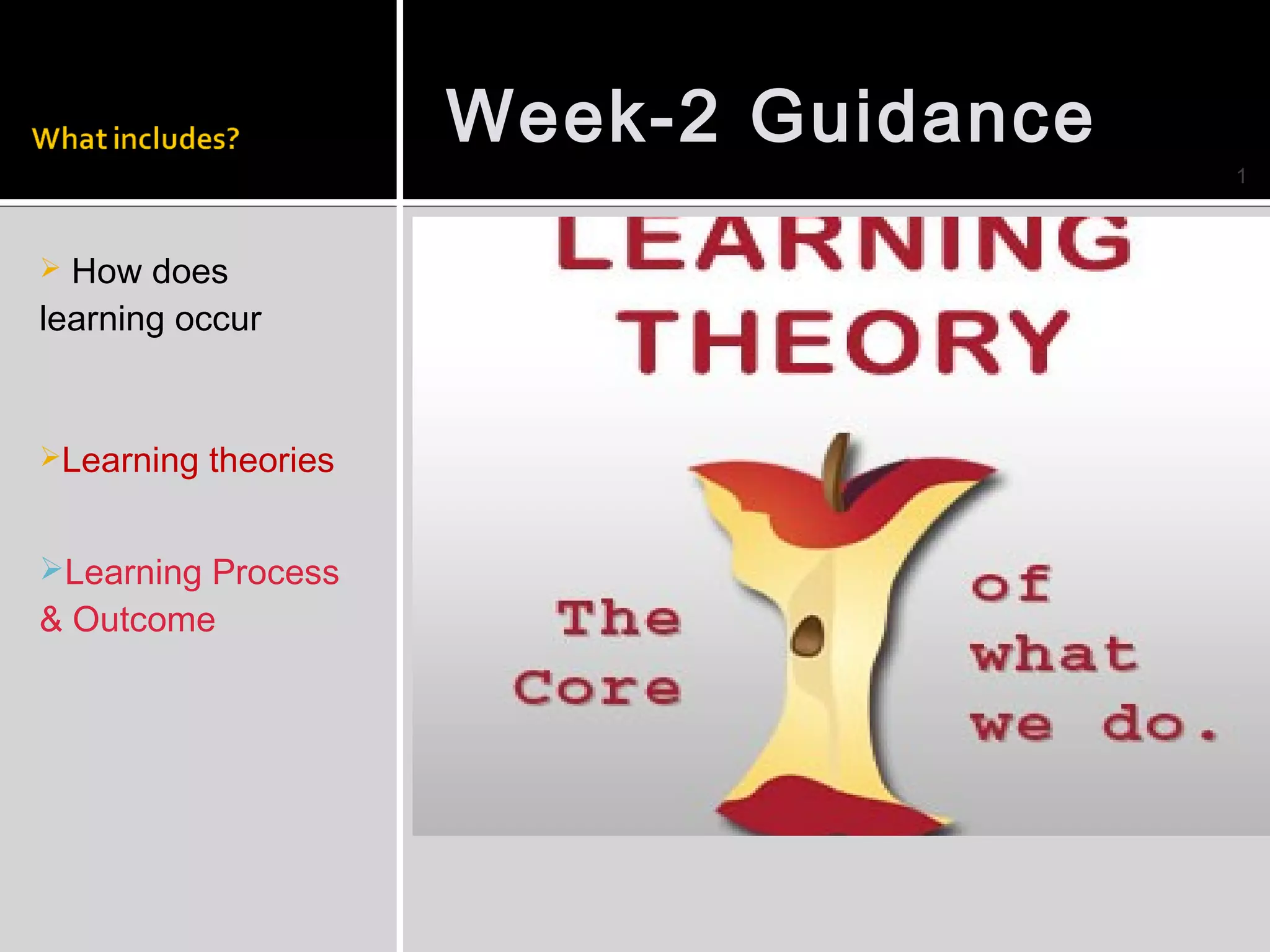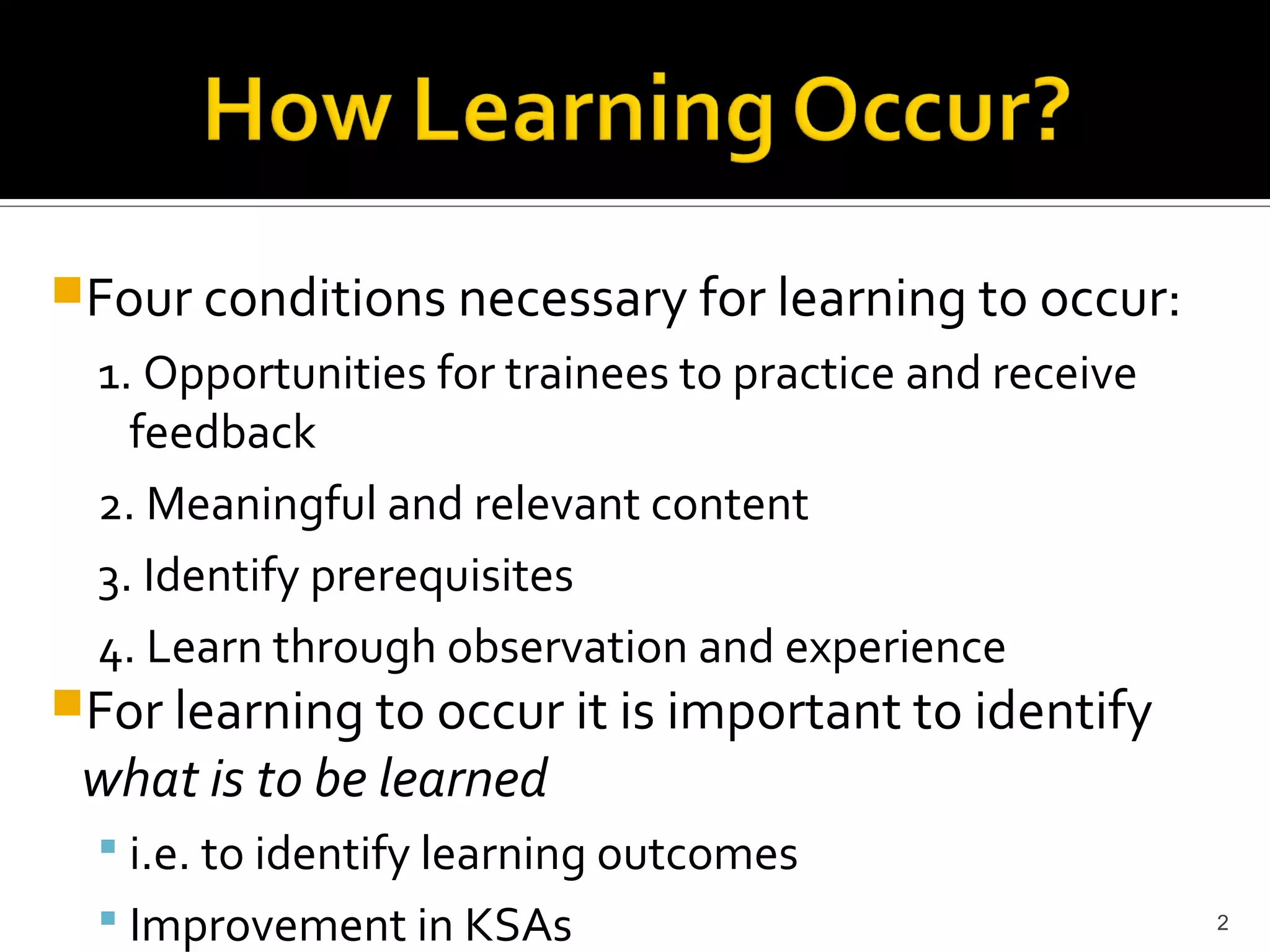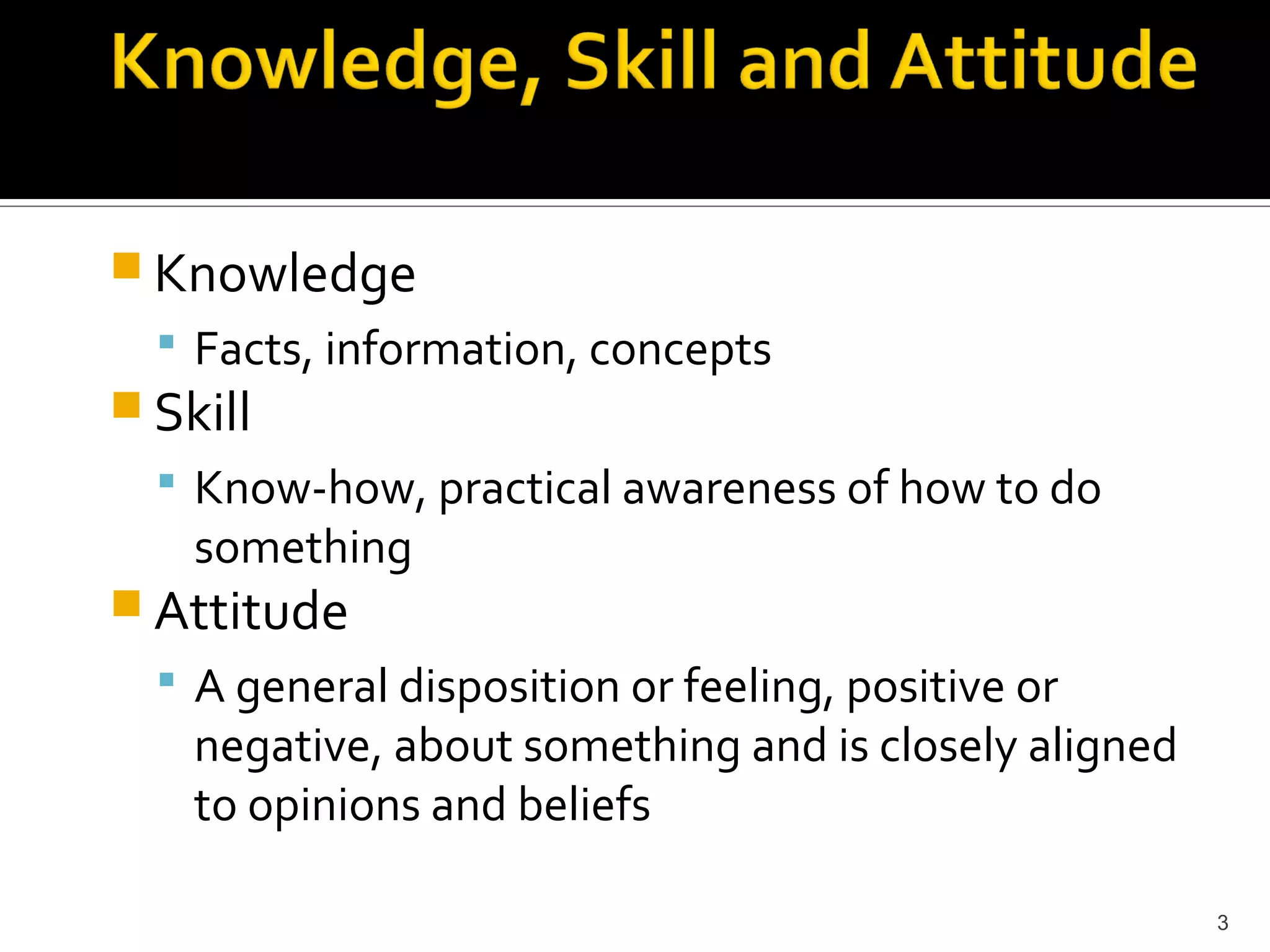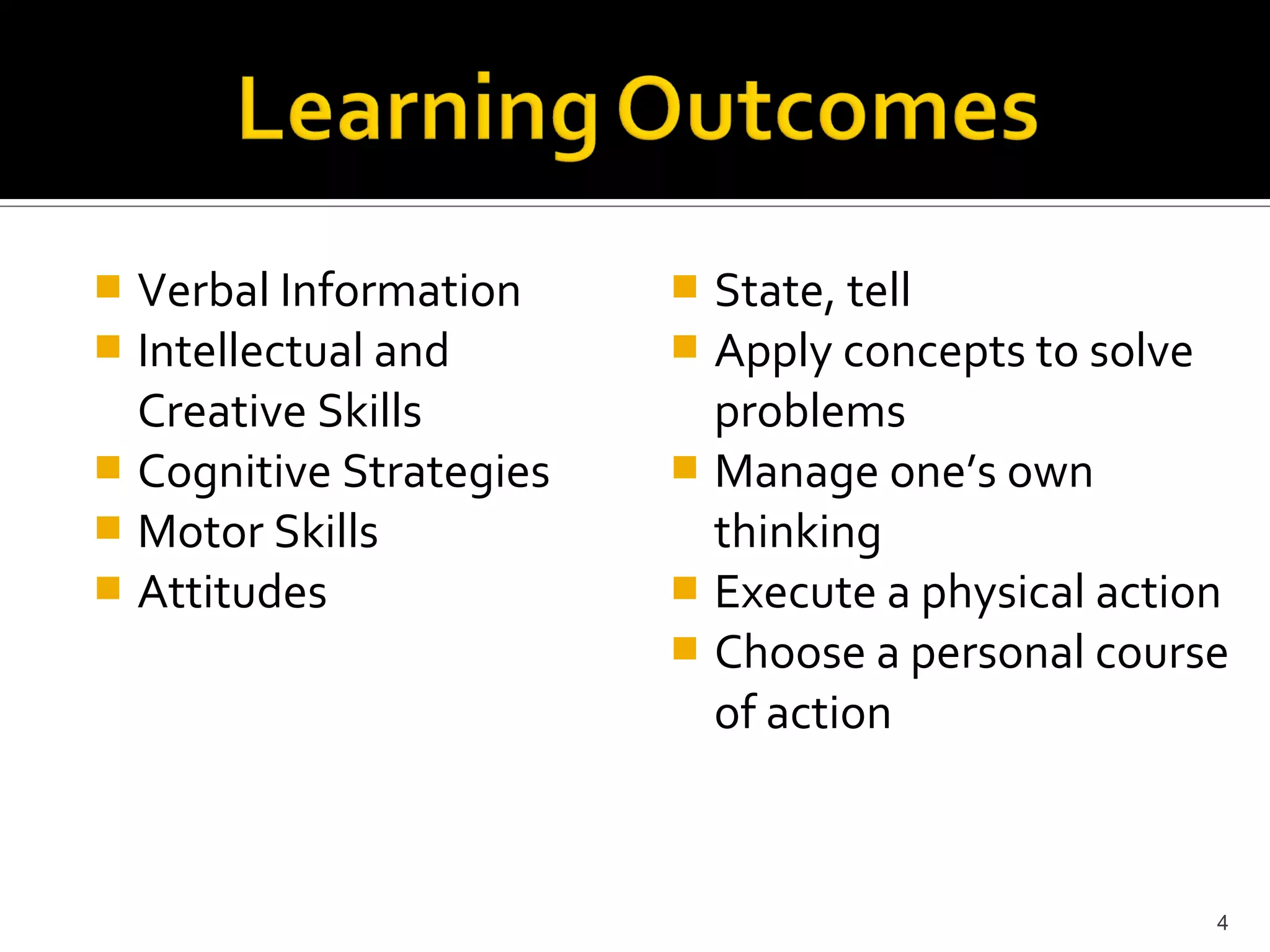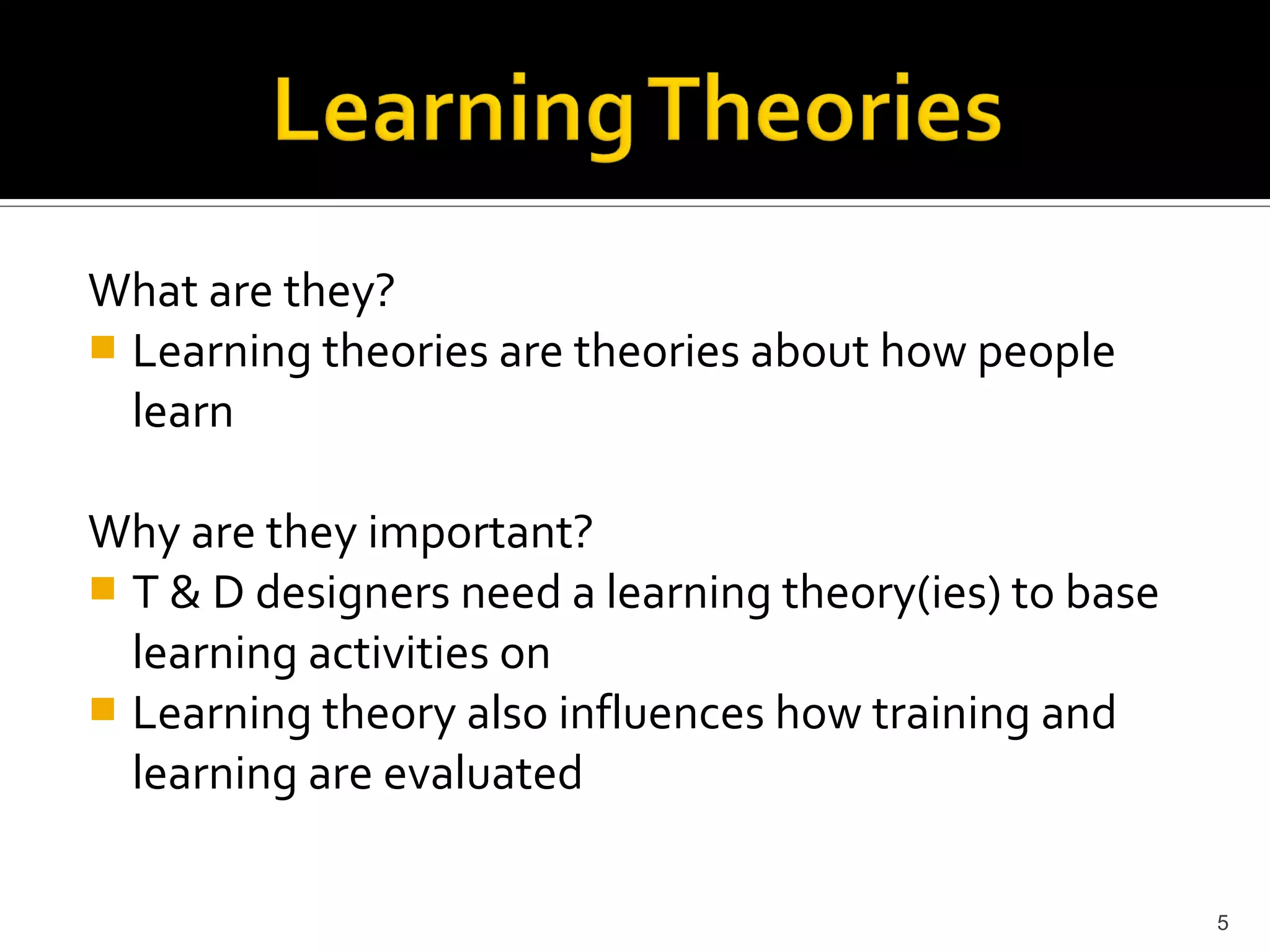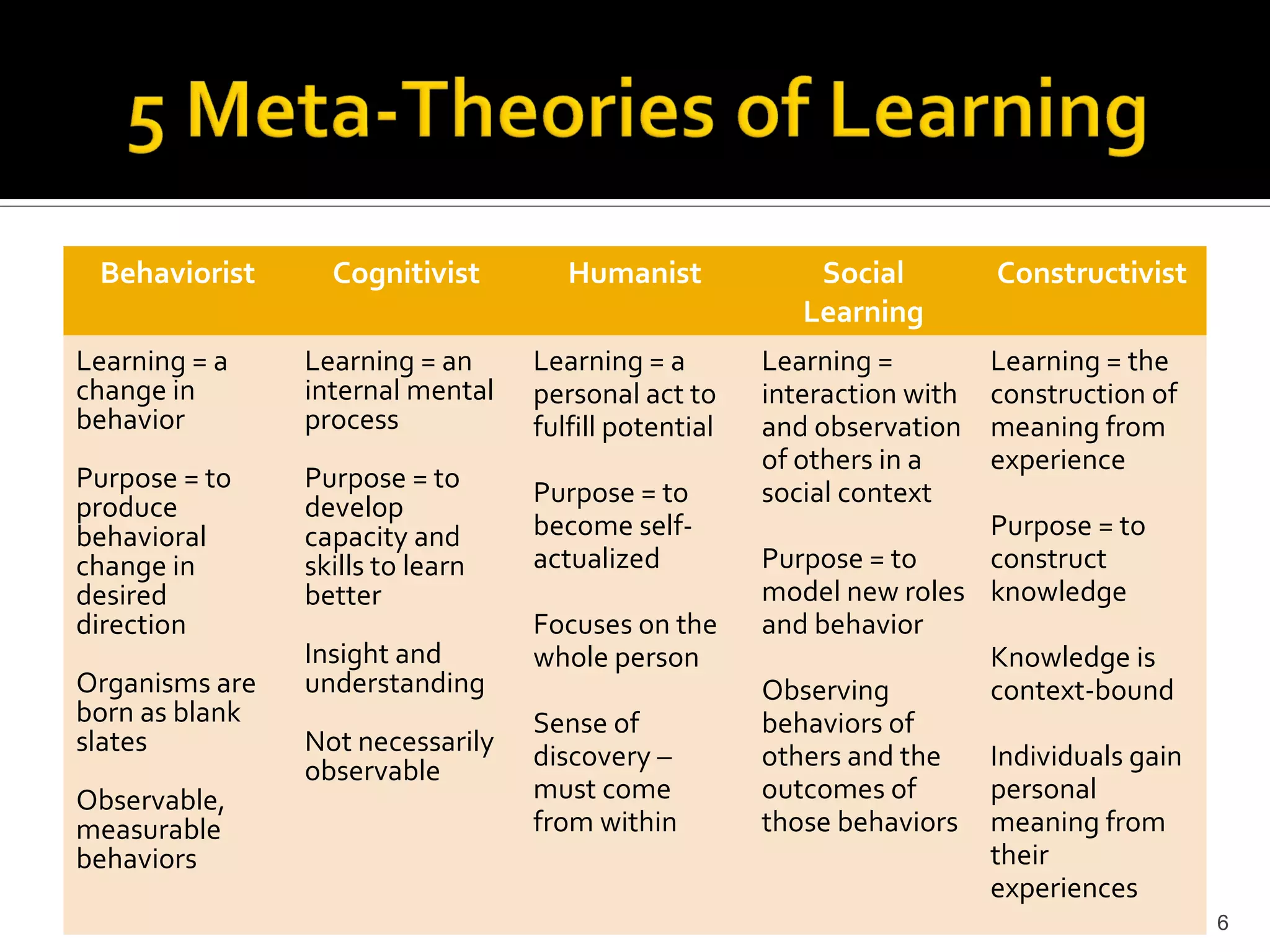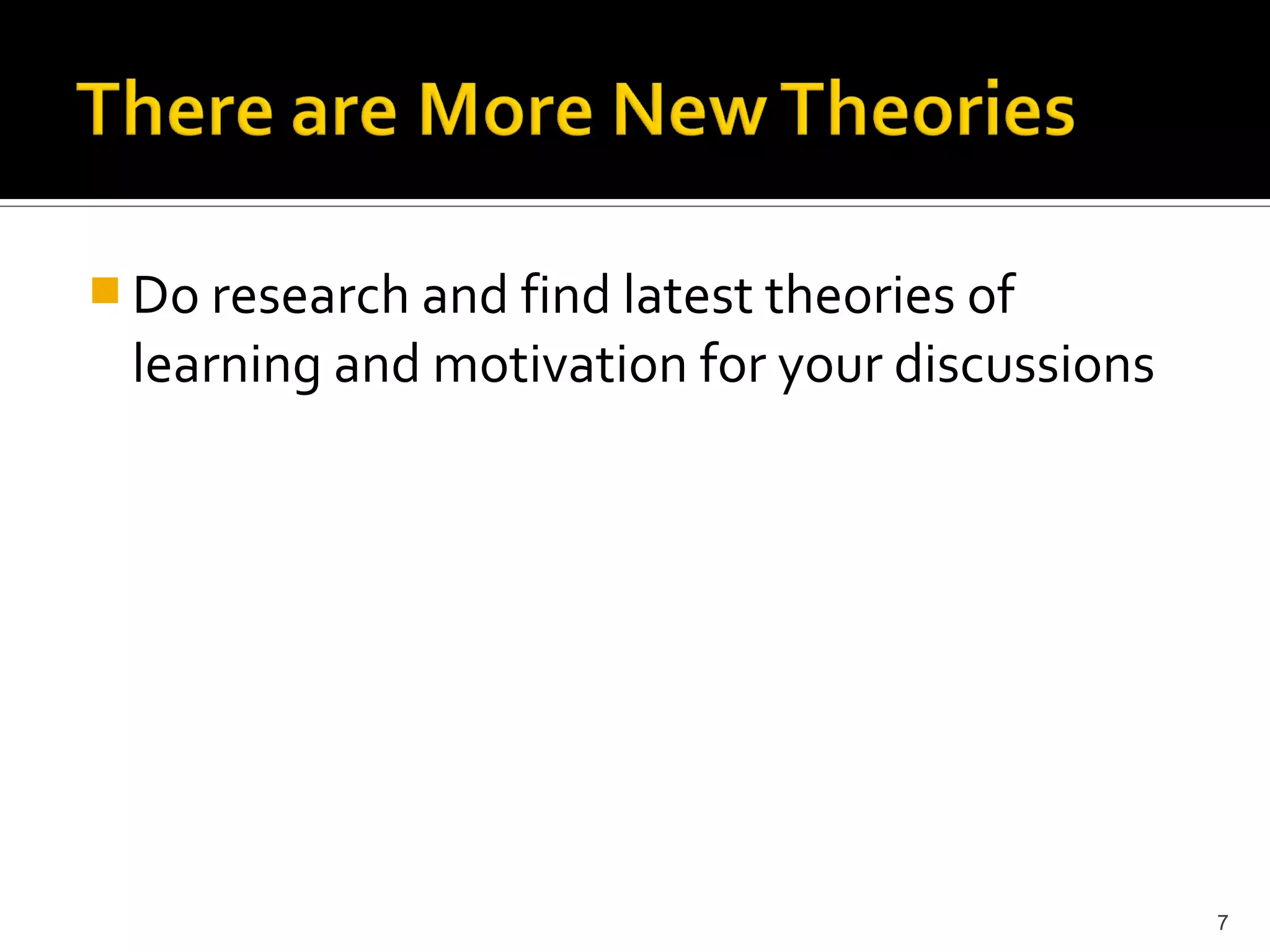The document provides guidance on learning theories and the learning process. It discusses four key conditions for learning to occur: practice and feedback, meaningful content, identifying prerequisites, and learning through observation and experience. Learning outcomes aim to improve knowledge, skills, and attitudes. Different learning theories are described, including behaviorist, cognitivist, humanist, social, and constructivist theories. Practitioners are advised to use learning theories to design effective training activities and evaluations.
